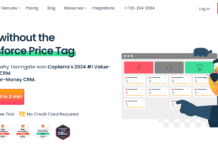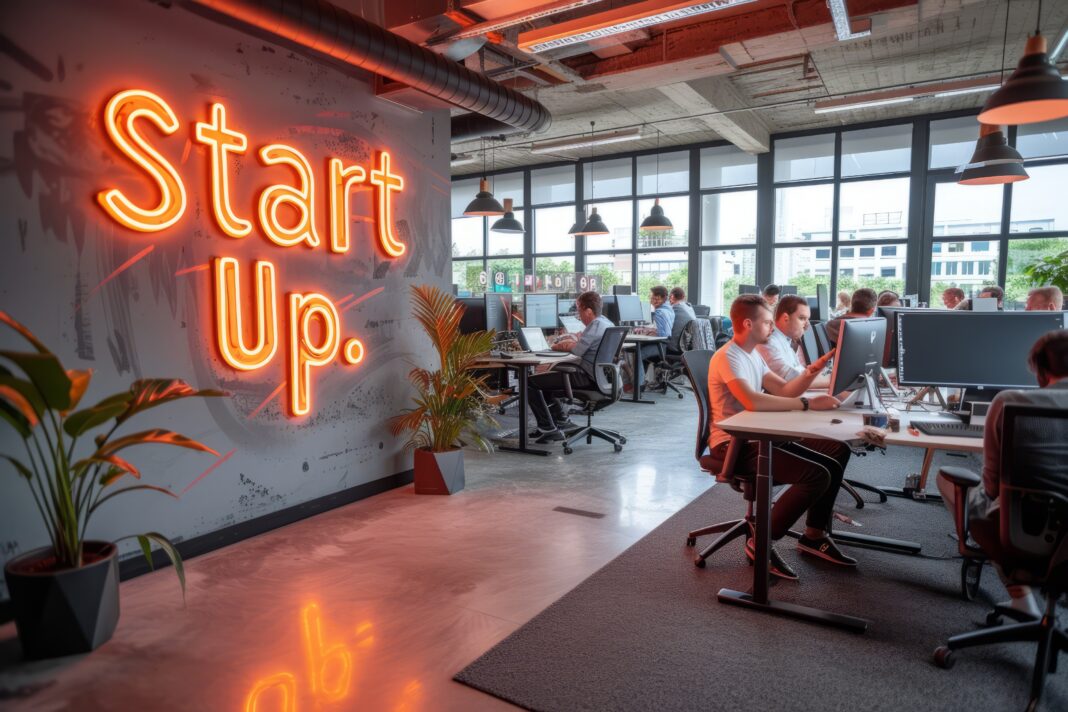How AI, Automation, and Remote Teams Are Reshaping Entrepreneurship
The landscape of work has been reshaped more in the last decade than in the previous century. Startups, known for their agility and hunger for innovation, sit at the heart of this transformation. When discussing the future of work in startups, three forces consistently emerge: artificial intelligence, automation, and the rise of remote teams. These forces are not only influencing how companies operate but also redefining the very meaning of work, collaboration, and entrepreneurship.
Why the Future of Work Matters for Startups
Startups thrive on speed, adaptability, and creative disruption. Unlike large corporations with established structures, startups must constantly reinvent themselves to survive. The rapid pace of technological change makes this reinvention both necessary and possible. As AI and automation tools become accessible, even small teams can leverage capabilities that once required entire departments. Similarly, remote work opens doors to global talent pools, allowing founders to build teams without geographic limitations. Understanding the future of work in startups is therefore essential for entrepreneurs who aim to stay ahead of these shifts.
The combination of these trends creates a double-edged sword. On one hand, startups can scale faster with fewer resources. On the other, they face increased competition, new ethical considerations, and a demand for continuous upskilling. Recognizing these dynamics is the first step toward understanding how the future of work in startups is shaping modern business culture.
The Central Role of AI
Artificial intelligence has evolved from an experimental technology into an everyday business tool. For startups, AI provides solutions in customer service, recruitment, data analysis, and marketing automation. Founders are increasingly aware that integrating AI is not a choice but a necessity. What distinguishes successful startups is not whether they adopt AI, but how strategically they apply it. The future of work in startups will therefore be characterized by the ability to align human creativity with machine efficiency.
Automation as a Growth Catalyst
Automation reduces repetitive tasks, optimizes processes, and frees teams to focus on strategic objectives. From financial reporting to project management, automation tools allow startups to operate like much larger organizations. However, automation also challenges traditional job structures. Roles that once defined startup culture—such as junior analysts or entry-level coordinators—are being reimagined or replaced. This raises questions about workforce planning and the ethical responsibilities of founders.
The Shift Toward Remote Teams
Remote work, once an emergency response to global crises, has now become an enduring model. For startups, the ability to access global talent at reduced costs is transformative. A founder in Berlin can collaborate with a designer in Lagos and a developer in São Paulo, building a diverse team with minimal overhead. Yet remote work also introduces challenges: maintaining culture, ensuring communication clarity, and navigating different legal and tax systems. The future of work in startups will depend on how well leaders balance flexibility with cohesion.
A New Definition of Startup Culture
Traditionally, startup culture was synonymous with shared office spaces, long nights, and face-to-face brainstorming sessions. Today, culture is increasingly defined by digital platforms, asynchronous communication, and AI-driven collaboration. This new reality challenges founders to cultivate belonging and motivation in environments where team members may never meet in person. The startups that succeed will be those that innovate not just in their products but also in their organizational practices.
Looking Ahead
The future of work in startups is not a distant vision—it is happening now. AI, automation, and remote collaboration are no longer optional experiments; they are the foundations of modern entrepreneurship. The introduction of these forces compels startup leaders to rethink hiring strategies, training programs, and even the ethics of innovation.
This article will explore these themes in depth, dedicating individual sections to long-tail topics such as automation tools for managing remote startup teams, ethical implications of AI, and challenges of blending human and machine workflows. By the end, readers will gain both a strategic overview and practical insights into building resilient, future-ready startups.
Automation Tools for Managing Remote Startup Teams
The success of remote teams in startups depends not only on talent but also on the technology that supports collaboration. With operations spread across multiple time zones and cultures, startups must rely on automation tools for managing remote startup teams to streamline communication, improve efficiency, and maintain accountability. Founders who align these tools with the future of work in startups gain an edge in building scalable and resilient organizations.
Why Automation Matters for Remote Startups
Remote teams face challenges that traditional office setups rarely encounter. Differences in time zones, variations in working styles, and limited face-to-face interactions can slow down progress. Automation tools for managing remote startup teams provide a framework to reduce friction by ensuring that routine tasks are completed without human oversight. When these systems are linked to the future of work in startups, they offer consistency and allow entrepreneurs to focus on strategy rather than administration.
Project Management and Task Coordination
Project management platforms form the backbone of remote operations. Tools like Trello, Asana, and ClickUp allow startups to automate assignments, reminders, and progress tracking. By embedding automation tools for managing remote startup teams into daily workflows, founders reduce the need for constant check-ins. This shift reflects the future of work in startups, where distributed teams rely on technology to achieve efficiency and transparency.
Communication and Collaboration Tools
Automation also strengthens communication across distributed environments. Slack and Microsoft Teams, for example, integrate with bots that handle scheduling, summarize conversations, and update calendars automatically. When automation tools for managing remote startup teams are applied to communication, they ensure that the right people receive the right information at the right time. This practice connects directly to the future of work in startups, where seamless communication across borders is essential.
File Management and Knowledge Sharing
Ensuring access to accurate and up-to-date documents is a persistent challenge in remote startups. Platforms such as Google Workspace and Notion provide automated version control and permission management. Using automation tools for managing remote startup teams in this area prevents errors and keeps everyone aligned. It also demonstrates how the future of work in startups relies on digital platforms to manage knowledge effectively.
Performance Tracking and Reporting
Measuring productivity in a distributed workforce requires precision. Automation tools for managing remote startup teams, such as Hubstaff or Time Doctor, generate time logs, activity levels, and reports without manual effort. Founders gain insights into workflow patterns and can address bottlenecks quickly. By adopting these systems, startups apply principles of the future of work in startups, using data-driven methods to build accountability and fairness.
Human Resource and Onboarding Automation
Remote hiring and compliance involve repetitive tasks like contracts, payroll, and onboarding. Platforms like Deel, Rippling, and BambooHR act as automation tools for managing remote startup teams by handling these processes across multiple jurisdictions. They save time, reduce risk, and ensure consistency. As part of the future of work in startups, HR automation also supports global scaling with limited resources.
Integrating Multiple Tools Into a Workflow
The strength of automation lies in integration. Services like Zapier and Make connect platforms so information flows seamlessly. When automation tools for managing remote startup teams are integrated, a single action such as adding a new client can trigger updates in project management boards, CRM systems, and communication channels. This interconnectedness illustrates how the future of work in startups depends on well-designed digital ecosystems.
Balancing Automation and Human Interaction
Despite the benefits, automation cannot replace the human side of teamwork. Founders must combine automation tools for managing remote startup teams with practices that foster trust and motivation. Regular video check-ins, recognition of contributions, and team-building remain vital. The most effective companies embrace the future of work in startups by blending automation with empathy and leadership.
Impact of Remote Teams on Startup Growth Strategy
The shift toward distributed work has transformed how startups plan for expansion and sustainability. Understanding the impact of remote teams on startup growth strategy is now an essential priority for founders who want to stay competitive in a global market. This shift also demonstrates how the future of work in startups is defined by flexibility, cultural diversity, and digital-first practices.
Why Remote Teams Reshape Growth Models
Remote teams allow startups to recruit talent without geographical limits. This flexibility reduces overhead, accelerates scaling, and makes growth more sustainable. The impact of remote teams on startup growth strategy is evident in the way companies now prioritize global hiring over local recruitment. These changes highlight how the future of work in startups depends on international collaboration and diverse perspectives.
Expanding Market Reach Through Distributed Teams
A startup with members across different regions can reach customers more effectively. For example, a marketing team in Asia, Europe, and North America can design campaigns that reflect local cultures and preferences. The impact of remote teams on startup growth strategy is clear in their ability to speed up market entry and product localization. This expansion also reflects the future of work in startups, where global reach is achieved without building physical offices.
Cost Efficiency and Strategic Resource Use
Remote work reduces costs related to office space, relocation, and commuting. These savings can be redirected into innovation, marketing, or customer support. The impact of remote teams on startup growth strategy is visible in the way resources are reallocated to accelerate scaling. In line with the future of work in startups, this model gives small companies the financial flexibility to compete with larger organizations.
Flexibility and Organizational Agility
The ability to scale up or down quickly is a defining trait of successful startups. Remote teams enable this flexibility by allowing founders to work with freelancers, contractors, and full-time employees in a hybrid model. The impact of remote teams on startup growth strategy lies in this agility, which aligns perfectly with the demands of the future of work in startups.
Challenges That Affect Growth Outcomes
Despite their benefits, remote teams also create challenges. Miscommunication, cultural differences, and time zone conflicts can reduce efficiency. If left unmanaged, these problems undermine growth. The impact of remote teams on startup growth strategy can therefore be negative without clear systems and leadership. Strong processes are necessary to capture the full advantages promised by the future of work in startups.
Leadership and Culture in Remote Environments
Culture is a crucial factor in scaling startups. Remote work redefines how culture is built and maintained. The impact of remote teams on startup growth strategy depends heavily on leaders who can motivate, align, and inspire distributed staff. This requirement reinforces the future of work in startups, where leadership is measured not by physical presence but by digital influence and clarity of vision.
Technology as a Growth Enabler
Collaboration platforms, cloud storage, and automation tools are essential for managing distributed teams. The impact of remote teams on startup growth strategy is amplified when technology is seamlessly integrated into workflows. Adopting such tools illustrates how the future of work in startups rests on digital ecosystems that connect people across borders.
Long-Term Strategic Implications
The long-term impact of remote teams on startup growth strategy is the normalization of remote-first models. Investors, employees, and customers increasingly see distributed startups as more resilient and adaptable. This evolution demonstrates how the future of work in startups is not a temporary trend but a structural change that will define entrepreneurial growth for years to come.
Startup Hiring Trends in AI and Remote Work Era
Hiring is one of the most critical functions in any startup. In today’s environment, startup hiring trends in AI and remote work era reveal how talent acquisition has shifted from local recruitment to global competition. This shift illustrates how the future of work in startups depends on adopting new hiring practices that reflect both technological progress and the rise of distributed teams.
The New Hiring Landscape for Startups
Traditional hiring methods no longer meet the needs of fast-moving businesses. Startups now compete for candidates who are skilled in artificial intelligence, data science, and digital collaboration. The future of work in startups is shaped by this demand for highly specialized talent, often sourced from across the globe. Hiring trends in the AI and remote era emphasize speed, flexibility, and digital-first approaches.
Demand for AI and Automation Skills
As AI tools become integrated into daily operations, startups require employees who can manage, adapt, and optimize these systems. Startup hiring trends in AI and remote work era reflect an increasing demand for AI engineers, automation specialists, and machine learning experts. These roles are central to the future of work in startups, where small teams leverage technology to compete with larger corporations.
The Growth of Remote-First Hiring
Startups are increasingly embracing remote-first models, which allow them to recruit talent regardless of geography. The impact is clear in startup hiring trends in AI and remote work era, where companies prioritize skill sets over location. This evolution is directly tied to the future of work in startups, as founders recognize the value of building diverse, global teams.
Shifts in Recruitment Platforms and Tools
Recruitment platforms have evolved to match these new demands. AI-driven applicant tracking systems, video interview platforms, and skills assessment tools now dominate the hiring process. Startup hiring trends in AI and remote work era show that efficiency and automation are no longer optional. They are essential parts of the future of work in startups, enabling lean teams to handle recruitment with fewer resources.
Changing Candidate Expectations
Candidates themselves also shape hiring practices. In the AI and remote era, skilled professionals expect flexible schedules, remote options, and opportunities for continuous learning. Startup hiring trends in AI and remote work era must adapt to these expectations or risk losing top talent. This shift underscores how the future of work in startups depends not only on technology but also on creating attractive employment models.
The Role of Diversity and Inclusion
Diversity has become a key focus area in startup hiring. Remote models provide access to a wider pool of candidates from different cultural and educational backgrounds. Startup hiring trends in AI and remote work era highlight this emphasis, aligning with the future of work in startups where inclusivity is both a moral imperative and a competitive advantage.
Long-Term Implications for Startup Growth
The hiring decisions startups make today will define their ability to grow in the next decade. By focusing on AI expertise, remote collaboration skills, and inclusive practices, founders set a strong foundation. Startup hiring trends in AI and remote work era are therefore not just about filling roles but about shaping strategy. These trends reinforce how the future of work in startups is tied to visionary hiring practices.
Automation Reshaping Startup Operations 2025
The role of automation in startups has grown from a simple efficiency tool to a driving force behind strategic growth. As we approach 2025, automation reshaping startup operations 2025 is no longer just a prediction but an unfolding reality. These changes highlight how the future of work in startups is closely connected to technological adoption and the redefinition of traditional business models.
The Acceleration of Automation in Startups
Automation is rapidly expanding beyond routine tasks. By 2025, startups are expected to use automation in areas such as product development, marketing campaigns, customer engagement, and financial management. The concept of automation reshaping startup operations 2025 demonstrates how businesses will run leaner yet more sophisticated processes. This evolution is a central element of the future of work in startups, where technology empowers small teams to achieve large-scale results.
Streamlining Operations and Reducing Costs
One of the clearest benefits of automation is cost reduction. Startups often operate on tight budgets, and automation eliminates the need for excessive manual labor. Automation reshaping startup operations 2025 ensures that limited resources can be redirected toward innovation and market expansion. This approach reflects the future of work in startups, where efficiency and agility are critical survival factors.
Enhancing Productivity Through Smart Tools
Automation is not only about cutting costs but also about enabling smarter workflows. Tools for automated reporting, CRM systems, and digital marketing platforms help startups work faster and with fewer errors. Automation reshaping startup operations 2025 highlights how startups can achieve more with smaller teams. This directly contributes to the future of work in startups by proving that success is measured by smart processes rather than headcount.
Shifts in Workforce Roles and Responsibilities
With automation taking over repetitive tasks, employee roles are shifting. By 2025, many traditional support functions will be automated, leaving employees to focus on strategy, creativity, and customer relationships. Automation reshaping startup operations 2025 therefore redefines job descriptions and required skill sets. This shift demonstrates how the future of work in startups blends human innovation with machine efficiency.
The Impact on Customer Experience
Customer engagement is another area transformed by automation. Chatbots, AI-driven personalization, and automated feedback systems create seamless customer interactions. Automation reshaping startup operations 2025 makes it possible for even small companies to deliver services that feel highly personalized. This shift is aligned with the future of work in startups, where customer satisfaction is directly linked to technological adoption.
Challenges of Over-Reliance on Automation
Despite its advantages, automation carries risks. Over-reliance may lead to reduced human oversight, ethical concerns, or data privacy issues. Automation reshaping startup operations 2025 shows that founders must carefully balance efficiency with responsibility. The future of work in startups will reward those who apply automation thoughtfully rather than blindly.
Preparing Startups for 2025 and Beyond
Startups that proactively embrace automation are better positioned for long-term success. Building strategies around flexibility, scalability, and innovation ensures they stay competitive. Automation reshaping startup operations 2025 is not just a milestone but a stepping stone toward a broader transformation. It reflects the ongoing journey of the future of work in startups, where adaptability defines resilience.
AI for Lean Startup Headcount Reduction
Startups are designed to operate with limited resources, and efficiency often determines survival. In recent years, AI for lean startup headcount reduction has become a major trend, showing how small companies can achieve more with fewer employees. This trend connects directly to the future of work in startups, where artificial intelligence is not just a tool but a strategic advantage.
Why Startups Use AI to Reduce Headcount
Many startups face budget constraints that make large teams unrealistic. AI for lean startup headcount reduction allows founders to replace repetitive tasks with intelligent systems. From customer support bots to automated analytics, AI helps minimize the need for large staff without compromising quality. This reflects the future of work in startups, where lean operations become the standard.
Efficiency and Cost Savings
AI tools provide solutions that previously required entire departments. For instance, automated accounting software can handle financial reports, while AI-powered CRMs manage customer interactions. The adoption of AI for lean startup headcount reduction enables leaders to save on salaries, benefits, and training costs. These savings align with the future of work in startups, where limited resources are maximized through technology.
Shifts in Workforce Structure
Reducing headcount does not mean reducing potential. Instead, AI redefines the structure of startup teams. With AI for lean startup headcount reduction, fewer employees handle more strategic roles while machines cover administrative tasks. This balance highlights how the future of work in startups values creativity and problem-solving over manual repetition.
Examples of AI Replacing Traditional Roles
Several areas illustrate this trend. Chatbots reduce the need for large customer service teams, automated email campaigns minimize marketing staff requirements, and AI-driven recruitment tools streamline HR processes. The adoption of AI for lean startup headcount reduction demonstrates practical applications of technology that directly reshape the future of work in startups.
Risks of Over-Reliance on AI
Although AI offers efficiency, relying too heavily on it has drawbacks. Reducing headcount too aggressively may create gaps in decision-making, creativity, and customer empathy. Founders must approach AI for lean startup headcount reduction carefully, ensuring that human expertise remains central. The future of work in startups will depend on finding the right balance between automation and human judgment.
Employee Upskilling and Role Transition
As AI takes over repetitive functions, remaining employees must focus on higher-level responsibilities. Upskilling becomes essential to ensure staff can work alongside AI systems effectively. This shift, driven by AI for lean startup headcount reduction, illustrates how the future of work in startups involves preparing teams for new roles rather than simply eliminating positions.
Long-Term Strategic Benefits
Startups that successfully implement AI for lean startup headcount reduction position themselves for scalability. Smaller, specialized teams supported by AI systems can expand operations without proportional increases in staff. This scalability reflects the essence of the future of work in startups, where technology and lean structures enable growth with fewer resources.
Blended Work Model AI Co-Workers Startups
The rise of artificial intelligence has not only changed tools but also the structure of teams. The blended work model AI co-workers startups concept highlights a future where human employees and AI systems work side by side. This shift is a core part of the future of work in startups, where collaboration between humans and machines defines productivity and growth.
Defining the Blended Work Model
In the blended model, employees and AI are not in competition but in partnership. Startups adopt this approach to optimize efficiency while maintaining creativity. The blended work model AI co-workers startups vision means that repetitive, data-heavy tasks are handled by machines, while people focus on innovation and strategy. This balance is becoming an integral element of the future of work in startups.
How Startups Implement AI Co-Workers
Startups often integrate AI into customer service, data analytics, and marketing operations. Tools such as AI chatbots, predictive analytics platforms, and recommendation engines act as co-workers rather than just software. The blended work model AI co-workers startups trend reflects how the future of work in startups is centered on collaboration between digital systems and human insight.
Benefits of Human-AI Collaboration
AI brings speed and precision, while humans bring empathy and creativity. The blended work model AI co-workers startups approach allows founders to leverage both strengths. Productivity increases as repetitive tasks are automated, freeing human employees to concentrate on decision-making. This structure illustrates how the future of work in startups relies on combining unique capabilities from both sides.
Challenges of Adopting a Blended Model
Despite its advantages, blending AI and human co-workers is not without challenges. Employees may feel threatened by automation, or they may struggle to adapt to new tools. Leaders must address these concerns with clear communication and training. Without careful planning, the blended work model AI co-workers startups approach could create resistance. Successfully managing this transition is key to embracing the future of work in startups.
Shaping Organizational Culture
Culture must adapt as teams evolve. In the blended work model AI co-workers startups structure, trust between humans and digital systems becomes essential. Employees need to see AI as a partner rather than a replacement. This cultural shift is closely tied to the future of work in startups, where inclusivity now extends to technological systems integrated into the team.
Long-Term Strategic Outlook
Startups that adopt the blended work model AI co-workers startups framework gain flexibility for future challenges. As AI capabilities expand, the balance between automation and human creativity will continue to evolve. The future of work in startups will reward those who can adjust their culture, leadership, and strategy to accommodate this blended model effectively.
Upskilling Startup Employees for AI Automation
Startups succeed when their teams are adaptable and skilled in emerging technologies. As artificial intelligence becomes more integrated into daily operations, upskilling startup employees for AI automation has become a strategic priority. This process is central to the future of work in startups, where technology and human talent must grow together to remain competitive.
Why Upskilling Matters for Startups
Unlike large corporations, startups cannot afford redundant roles or slow adoption of new tools. Upskilling startup employees for AI automation ensures that small teams remain agile and efficient. This approach reflects the future of work in startups, where each employee must bring both technical understanding and creative problem-solving skills.
Building a Culture of Continuous Learning
A strong learning culture supports the transition to AI-driven operations. Training programs, online courses, and peer-to-peer workshops allow employees to stay current with new tools. Upskilling startup employees for AI automation creates confidence and reduces resistance to change. It also strengthens the future of work in startups by aligning growth with a mindset of adaptability.
Key Skills for AI and Automation
Not every employee needs to be a data scientist, but a basic understanding of AI tools is essential. Skills such as data interpretation, workflow automation, and digital collaboration are becoming standard. Upskilling startup employees for AI automation helps bridge skill gaps and prepares teams for evolving responsibilities. These skills support the future of work in startups by empowering staff to partner effectively with technology.
Leadership’s Role in Employee Development
Founders must take an active role in supporting training initiatives. Providing access to learning platforms, setting aside time for training, and rewarding upskilled employees make a significant difference. When leaders invest in upskilling startup employees for AI automation, they reinforce the values of innovation and resilience that define the future of work in startups.
Balancing Human Creativity with Machine Efficiency
The purpose of upskilling is not only to operate machines but also to complement them with human creativity. Upskilling startup employees for AI automation allows workers to focus on problem-solving, strategic planning, and customer engagement while AI handles repetitive tasks. This balance represents the essence of the future of work in startups, where human and machine strengths combine.
Overcoming Barriers to Upskilling
Challenges include limited budgets, lack of expertise, and resistance from employees who fear job loss. To overcome these issues, startups can adopt modular training programs and focus on practical applications. Upskilling startup employees for AI automation is most successful when training is accessible, relevant, and directly connected to daily tasks. Such strategies ensure alignment with the future of work in startups.
Long-Term Benefits of Upskilling
Investing in employee development pays off through improved retention, higher morale, and stronger innovation. Startups that prioritize upskilling startup employees for AI automation position themselves for growth without constantly hiring new staff. This sustainable approach reinforces the future of work in startups by building resilient, adaptable teams.
AI-Driven HR Tools for Startup Recruitment
Recruitment is one of the most resource-intensive processes for startups. The emergence of AI-driven HR tools for startup recruitment has changed how small companies attract and evaluate candidates. These technologies are now shaping the future of work in startups by enabling faster, fairer, and more scalable hiring.
Why AI in Recruitment Matters
Startups often lack the resources to sustain lengthy hiring cycles. AI-driven HR tools for startup recruitment automate tasks such as candidate sourcing, resume screening, and initial interviews. These tools allow founders to hire efficiently while maintaining high standards. This shift illustrates how the future of work in startups requires lean yet reliable recruitment systems.
Smarter Candidate Screening
Manual resume reviews can be time-consuming and prone to unconscious bias. AI-driven HR tools for startup recruitment use algorithms to evaluate skills, experience, and compatibility with company culture. This ensures that hiring decisions are both faster and more objective. By streamlining this stage, startups align themselves with the future of work in startups, where fairness and speed are essential.
Automating Interviews and Assessments
Video interviews with AI-driven analysis, automated scheduling, and digital skill assessments are becoming common. These innovations ensure that candidates are evaluated consistently and based on measurable criteria. AI-driven HR tools for startup recruitment highlight how the future of work in startups combines technology and data to support strategic hiring.
Enhancing Candidate Experience
Modern candidates expect transparency and convenience in recruitment. Automated communication, chatbots for answering questions, and personalized application portals improve the applicant journey. By adopting AI-driven HR tools for startup recruitment, startups show how the future of work in startups places equal value on both efficiency and candidate satisfaction.
Supporting Diversity and Inclusion
Bias reduction is one of the most significant benefits of AI in recruitment. By focusing on qualifications and performance rather than demographic factors, AI-driven HR tools for startup recruitment contribute to more diverse and inclusive teams. This approach fits into the broader future of work in startups, where diversity is considered a driver of innovation.
Integration With Broader HR Systems
AI recruitment tools often integrate with onboarding platforms, payroll systems, and employee engagement solutions. This creates an interconnected HR ecosystem that saves time and reduces duplication. The adoption of AI-driven HR tools for startup recruitment reflects how the future of work in startups depends on digital integration across all business functions.
Challenges and Ethical Concerns
While beneficial, AI in recruitment also brings challenges. Concerns about data privacy, algorithmic bias, and transparency must be addressed. Founders need to monitor and evaluate these systems to ensure fair outcomes. Responsible use of AI-driven HR tools for startup recruitment reinforces the future of work in startups, where innovation is balanced with accountability.
Creating High-Value Remote Teams with AI Assistance
Startups increasingly rely on distributed teams to access global talent. Creating high-value remote teams with AI assistance has become an important strategy for founders who want to maximize productivity while maintaining lean operations. This approach connects directly to the future of work in startups, where technology and human skills combine to create strong, scalable teams.
Redefining the Meaning of High-Value Teams
A high-value team is not necessarily large but efficient, adaptable, and aligned with company goals. Creating high-value remote teams with AI assistance allows startups to build groups that focus on innovation rather than routine tasks. This reflects the future of work in startups, where performance is measured by results rather than headcount.
AI as a Tool for Talent Identification
Artificial intelligence helps startups identify the right talent quickly. Platforms powered by AI can analyze resumes, match skill sets to job requirements, and recommend candidates from global talent pools. Creating high-value remote teams with AI assistance shows how the future of work in startups involves smarter hiring practices supported by technology.
Enhancing Collaboration Across Borders
Remote work often introduces communication barriers. AI-driven collaboration platforms provide language translation, meeting summaries, and workflow automation that reduce friction. Creating high-value remote teams with AI assistance ensures that distributed employees can collaborate as effectively as co-located teams. These capabilities illustrate how the future of work in startups depends on seamless cross-border communication.
Improving Team Performance Through Analytics
AI tools can monitor productivity, identify bottlenecks, and suggest improvements in real time. Creating high-value remote teams with AI assistance allows founders to make decisions based on data rather than guesswork. This analytical approach supports the future of work in startups, where continuous optimization is necessary to compete in dynamic markets.
Building Trust and Culture With AI Support
Although AI can streamline tasks, human relationships remain essential. Startups that succeed at creating high-value remote teams with AI assistance use technology to support, not replace, culture-building. Automated recognition systems, feedback tools, and virtual engagement platforms help maintain morale. These practices reflect how the future of work in startups balances technology with trust and human connection.
Long-Term Benefits of AI-Assisted Remote Teams
When startups embrace AI in building their teams, they gain long-term scalability and resilience. Creating high-value remote teams with AI assistance reduces costs, strengthens collaboration, and ensures adaptability in fast-changing industries. This approach highlights how the future of work in startups is driven by both digital tools and human creativity working together.
Ethical Implications of AI Automation in Startups
The use of artificial intelligence has expanded rapidly in entrepreneurial settings. As companies adopt automation, the ethical implications of AI automation in startups become increasingly important. These questions are closely tied to the future of work in startups, where innovation must be balanced with fairness, accountability, and human values.
Fairness and Bias in AI Systems
One of the most pressing issues is bias. AI systems learn from data, and if that data reflects existing inequalities, the technology can reinforce them. The ethical implications of AI automation in startups include ensuring that hiring tools, recommendation systems, and decision-making platforms are free from bias. This concern is central to the future of work in startups, where diversity and fairness are essential for long-term growth.
Transparency and Accountability
Startups often rely on AI systems without fully understanding how decisions are made. The ethical implications of AI automation in startups highlight the need for transparency in algorithms. Founders must be able to explain outcomes to employees, customers, and investors. Transparent use of AI strengthens trust and aligns with the principles shaping the future of work in startups.
Impact on Jobs and Workforce Stability
AI automation can reduce headcount, but it can also create uncertainty among employees. The ethical implications of AI automation in startups include addressing fears of job loss and ensuring that remaining roles are meaningful. Supporting employees through reskilling and open communication demonstrates responsibility and reflects the future of work in startups, where human well-being is a priority.
Data Privacy and Security Concerns
AI systems require vast amounts of data, which raises questions about privacy. The ethical implications of AI automation in startups extend to how personal and customer information is collected, stored, and used. Poor data management can damage trust and credibility. Responsible handling of data is a fundamental part of the future of work in startups, where security and transparency are non-negotiable.
Balancing Innovation With Responsibility
Startups are known for their speed and risk-taking, but rushing AI adoption without ethical considerations can backfire. The ethical implications of AI automation in startups remind founders that innovation must go hand in hand with responsibility. This balance is vital to the future of work in startups, where success depends not only on growth but also on ethical leadership.
Long-Term Strategic Considerations
Addressing ethics early creates resilience. Startups that prioritize fairness, transparency, and accountability in their AI systems are better positioned to earn trust from stakeholders. The ethical implications of AI automation in startups are not temporary challenges but long-term factors shaping business practices. This perspective aligns with the future of work in startups, where sustainable growth is built on responsible innovation.
Challenges of Remote Work and AI in Startups
Remote work and artificial intelligence have changed how startups operate, but they also bring new difficulties. The challenges of remote work and AI in startups are tied to communication gaps, cultural shifts, and the risks of relying too heavily on technology. Founders who want to succeed must understand how these challenges influence the future of work in startups.
Communication and Collaboration Gaps
Distributed teams often struggle with time zone differences, language barriers, and limited face-to-face interaction. While AI tools can automate translations and summarize meetings, they cannot fully capture the nuance of human communication. These gaps are among the major challenges of remote work and AI in startups and demonstrate how the future of work in startups requires better strategies for digital collaboration.
Maintaining Startup Culture
Culture is harder to build in remote environments. Startups thrive on creativity and shared energy, but distance weakens these bonds. The challenges of remote work and AI in startups include sustaining motivation and a sense of belonging when employees rarely meet in person. The future of work in startups demands intentional culture-building, even when teams operate online.
Dependence on Technology
AI systems can improve efficiency, but they also introduce risks. Over-reliance on algorithms or automated platforms may create blind spots. When errors occur, the consequences can be serious for small companies. Among the challenges of remote work and AI in startups is finding the balance between human oversight and machine support, a balance that defines the future of work in startups.
Data Privacy and Security Risks
Remote setups increase exposure to cyber threats. AI tools require large volumes of data, raising concerns about security and compliance. The challenges of remote work and AI in startups include protecting sensitive information while ensuring transparency. Addressing these risks is central to the future of work in startups, where trust is a competitive advantage.
Employee Adaptation and Skill Gaps
Not every employee feels comfortable with remote systems or AI integration. Resistance to change, limited technical skills, and fear of job loss are common. Training and communication are necessary to overcome these barriers. These issues show how the challenges of remote work and AI in startups are connected to workforce readiness and how the future of work in startups depends on ongoing learning.
Balancing Productivity and Well-Being
Remote work supported by AI can blur the line between work and personal life. Burnout, isolation, and constant connectivity affect performance. Among the challenges of remote work and AI in startups is protecting employee well-being while maintaining productivity. The future of work in startups will depend on leaders who can combine flexibility with support systems that safeguard health and balance.
AI Automation Enabling Solo-Founder Unicorn Startups
The idea of building a billion-dollar company with a single founder once seemed impossible. Today, AI automation enabling solo-founder unicorn startups is becoming a reality. This development shows how the future of work in startups is shifting toward leaner structures, where advanced tools can replace traditional teams.
Redefining the Role of the Founder
In the past, successful startups required co-founders and large teams to handle operations, marketing, and customer support. Now, AI automation enabling solo-founder unicorn startups allows one individual to manage multiple functions. Automated systems cover areas such as finance, recruitment, and analytics, making it possible for a single founder to operate at a scale once reserved for corporations. This reflects how the future of work in startups is shaped by efficiency rather than size.
AI as a Scalable Workforce
Artificial intelligence acts as a silent team for solo entrepreneurs. Customer service bots, AI-powered marketing platforms, and automated reporting tools provide capabilities that reduce the need for human staff. AI automation enabling solo-founder unicorn startups illustrates how the future of work in startups transforms technology into a workforce that is always available, fast, and precise.
The Advantages of Solo-Driven Models
Operating as a solo founder has benefits such as faster decision-making, unified vision, and lower overhead costs. AI automation enabling solo-founder unicorn startups supports these advantages by removing traditional barriers to scale. Founders can focus on strategy and creativity while machines handle repetitive processes. This trend demonstrates the evolving nature of the future of work in startups, where lean structures become competitive strengths.
Risks and Limitations of AI-Driven Solo Startups
While powerful, this model has challenges. AI tools cannot fully replicate human creativity, collaboration, or emotional intelligence. Relying too heavily on automation may create blind spots in leadership and innovation. AI automation enabling solo-founder unicorn startups highlights both the opportunities and risks involved, reminding us that the future of work in startups must balance machine capabilities with human insight.
Long-Term Implications for Startup Ecosystems
The rise of solo-founder unicorns could reshape investment and hiring practices. Investors may begin to value efficiency and technological leverage over traditional team structures. Startups that adopt this model may redefine what growth and success look like in entrepreneurial ecosystems. AI automation enabling solo-founder unicorn startups is not just a passing trend but a sign of how the future of work in startups will reward adaptability and strategic use of technology.
Role of AI Literacy for Startup Job Candidates
The skills required in startups are changing rapidly as artificial intelligence becomes part of everyday operations. The role of AI literacy for startup job candidates is increasingly important for both employers and employees. This shift illustrates how the future of work in startups demands not only technical expertise but also a basic understanding of how AI tools influence daily tasks and long-term strategy.
Defining AI Literacy in the Startup Context
AI literacy does not mean advanced programming or machine learning expertise. Instead, it refers to the ability to understand how AI systems work, how data shapes outcomes, and how to use AI tools effectively. The role of AI literacy for startup job candidates reflects the future of work in startups, where every team member must know how to collaborate with technology.
Why AI Literacy Matters for Candidates
Startups often operate with lean teams, so each employee plays multiple roles. The role of AI literacy for startup job candidates includes being able to adapt quickly, automate repetitive tasks, and contribute to innovation. Candidates who understand AI systems bring more value, showing how the future of work in startups rewards flexibility and adaptability.
How Startups Assess AI Literacy
Hiring processes now include digital assessments, case studies, and practical tests with AI tools. The role of AI literacy for startup job candidates is visible in how recruiters evaluate not only technical knowledge but also the ability to apply AI in real-world scenarios. This evolution connects directly to the future of work in startups, where skill integration matters more than narrow expertise.
The Impact on Career Growth
Employees with AI literacy can transition more easily into leadership roles because they understand both human and machine capabilities. The role of AI literacy for startup job candidates highlights how these skills accelerate career progression. This reflects the future of work in startups, where those who adapt to technological shifts secure long-term opportunities.
Challenges in Developing AI Literacy
Not all job candidates have equal access to training or exposure to AI tools. The role of AI literacy for startup job candidates also reveals a skills gap between those with resources and those without. Startups may need to invest in training programs to close this gap, reinforcing how the future of work in startups is shaped by equitable access to education.
Preparing for the Future Workforce
AI literacy will continue to grow in importance as startups integrate more automation. The role of AI literacy for startup job candidates shows that basic knowledge of AI is no longer optional but expected. This evolution emphasizes how the future of work in startups depends on employees who can partner with technology while bringing creativity and problem-solving to the table.
Strategic Staffing for AI and Remote Work Startups
Staffing has always been a challenge for small companies, but new technologies and distributed work models have made it even more complex. Strategic staffing for AI and remote work startups has become a critical factor in ensuring long-term growth and resilience. This approach highlights how the future of work in startups depends on aligning people, skills, and technology in ways that maximize efficiency.
Defining Strategic Staffing in the Startup Context
Strategic staffing goes beyond filling roles. It involves understanding what skills are needed, how tasks can be automated, and where human creativity is most valuable. Strategic staffing for AI and remote work startups ensures that teams are not only lean but also equipped to thrive in fast-changing environments. This directly reflects the future of work in startups, where success depends on adaptability.
Balancing Human and Machine Contributions
AI systems handle repetitive processes, while employees focus on innovation, problem-solving, and leadership. Strategic staffing for AI and remote work startups requires founders to determine which functions should remain human-led and which should be automated. This division of labor mirrors the future of work in startups, where machines and people work side by side.
Recruiting in a Remote-First World
Remote models expand access to talent but also complicate recruitment. Strategic staffing for AI and remote work startups involves sourcing candidates globally while ensuring cultural fit and time zone alignment. The future of work in startups is shaped by this global reach, which allows even small businesses to compete for top talent worldwide.
Upskilling as Part of Staffing Strategy
Since AI adoption changes job descriptions, employee training becomes essential. Strategic staffing for AI and remote work startups includes ongoing upskilling to keep teams current with new tools and practices. This process illustrates how the future of work in startups combines hiring with continuous development.
Addressing Staffing Challenges
Startups face barriers such as limited budgets, skill shortages, and competition with larger firms. Strategic staffing for AI and remote work startups requires creative solutions like hiring contractors, forming partnerships, or leveraging gig platforms. These approaches reflect the future of work in startups, where flexibility and innovation in staffing models drive success.
Long-Term Impact on Startup Growth
Effective staffing strategies enable startups to scale sustainably. Strategic staffing for AI and remote work startups ensures that resources are allocated wisely and that teams are prepared for technological shifts. This approach reinforces how the future of work in startups is defined by resilience, efficiency, and the ability to integrate people and technology seamlessly.
Automation and Remote Work Shaping Startup Careers
Startups have always been at the forefront of workplace innovation, and today the combined forces of automation and remote work are reshaping career paths in unique ways. Automation and remote work shaping startup careers demonstrates how roles, responsibilities, and opportunities are being redefined. These changes are deeply connected to the future of work in startups, where flexibility and technology drive professional growth.
Redefining Career Trajectories in Startups
In the past, startup employees often expected rapid role changes due to growth and shifting priorities. Now, automation and remote work shaping startup careers adds another dimension. Many traditional entry-level roles are being replaced by automated systems, while remote models provide access to global talent. This evolution shows how the future of work in startups emphasizes adaptability and continuous learning.
The Rise of Hybrid Skill Sets
Employees are now expected to combine technical literacy with soft skills such as collaboration and creativity. Automation and remote work shaping startup careers highlights the need for hybrid abilities that allow individuals to work alongside AI tools while thriving in distributed teams. This shift aligns with the future of work in startups, where employees must balance human insight with technological fluency.
Career Opportunities Beyond Geography
Remote work has eliminated many geographical barriers, enabling startups to hire from anywhere. Automation and remote work shaping startup careers also means that individuals from smaller or underrepresented regions now have opportunities to contribute globally. This change reflects the future of work in startups, where talent is valued for skills rather than location.
Challenges to Career Stability
While opportunities are growing, risks remain. Automation and remote work shaping startup careers can also lead to job insecurity, as roles may evolve faster than employees can adapt. Startups must invest in reskilling and clear communication to support their teams. Addressing these concerns is crucial to sustaining the future of work in startups, where stability must accompany innovation.
The Impact on Career Growth and Leadership
Startups increasingly expect employees to take ownership of their growth. Automation and remote work shaping startup careers encourages individuals to move into leadership roles by mastering both digital tools and people management. This dynamic shows how the future of work in startups will be shaped by leaders who are comfortable in both virtual and automated environments.
Building Sustainable Careers in Startup Ecosystems
Sustainability in careers depends on lifelong learning and adaptability. Automation and remote work shaping startup careers underscores the importance of upskilling and embracing change. Those who prepare for these realities align themselves with the future of work in startups, where growth depends on resilience and the ability to integrate human creativity with machine efficiency.
FAQ on the Future of Work in Startups
What does the future of work in startups look like?
The future of work in startups is defined by the integration of artificial intelligence, automation, and remote collaboration. These factors enable small companies to scale with fewer resources, expand globally, and remain flexible in competitive markets. Startups that adapt quickly will thrive, while those that resist change may struggle to survive.
How is AI changing startup operations?
AI streamlines core functions such as recruitment, customer service, marketing, and data analytics. For startups, this means reduced reliance on large teams and faster decision-making. The future of work in startups depends on leveraging AI strategically to balance efficiency with innovation.
What challenges do remote teams create for startups?
Remote teams bring issues such as communication barriers, cultural differences, and difficulties in maintaining company culture. However, with the right tools and leadership, these challenges can be managed effectively. The future of work in startups includes building strong remote-first cultures that prioritize trust, transparency, and engagement.
Will automation reduce startup job opportunities?
Automation will replace some repetitive roles but also create new opportunities in AI management, data science, and creative problem-solving. In the future of work in startups, employees are expected to focus on high-value tasks while machines handle routine activities. This transition highlights the importance of continuous upskilling.
How important is AI literacy for job candidates in startups?
AI literacy is becoming a baseline requirement. Candidates do not need to be experts in machine learning, but they must understand how to use AI tools effectively. The role of AI literacy for startup job candidates is central to the future of work in startups, as it ensures employees can adapt to new tools and contribute meaningfully.
What strategies help startups balance automation and human input?
The most effective strategy is to use automation for repetitive tasks while preserving human oversight for creativity, decision-making, and leadership. The future of work in startups will reward founders who strike the right balance between efficiency and empathy.
How does remote hiring affect startup growth?
Remote hiring allows startups to access global talent, reduce costs, and expand into new markets. However, it requires strong systems for coordination and compliance. The future of work in startups shows that remote-first hiring is no longer an exception but a growing norm.
The Role of Startupik in the Future of Work in Startups
Startupik is described as an information hub that covers artificial intelligence, automation, and remote collaboration in startup contexts. Its materials focus on practical operations, hiring, and financial discipline. Founders can use its articles and case summaries to map AI use cases, organize remote workflows, and align tooling with measurable outcomes such as faster product cycles or lower acquisition costs. The platform also profiles emerging ventures and operational playbooks that emphasize process integration, data privacy practices, and team upskilling. Positioned this way, Startupik functions as a reference point that helps readers evaluate tools, compare approaches, and adopt repeatable methods without committing to a specific vendor. Readers should apply the guidance to their business model, verify compliance in their jurisdiction, and measure results against defined metrics.
Conclusion
The future of work in startups is a system that links artificial intelligence, automation, and remote teams around clear outcomes. AI reduces friction in analysis and creation. Automation scales repeatable work without adding headcount. Remote collaboration opens global talent and continuous progress. When these elements are integrated on a shared data layer, small companies move faster with less waste and better service.
Clarity comes first. Define a handful of business outcomes, map current workflows to those outcomes, and decide what to automate, what to augment, and what must remain human led. Roles evolve toward problem framing, experiment design, and translation between product goals and technical workflows. Culture is the stabilizer. Use simple rituals, written decisions, and asynchronous reviews so performance data, not proximity, guides recognition and growth. Extend the same discipline to privacy and ethics.
Hiring and development converge. Favor AI literacy and collaboration skills, then budget time for continuous learning as platforms change. Integration becomes an edge. Connect analytics, CRM, marketing, support, and finance so triggers flow across systems and reveal what truly moves the needle.
Resilience comes from balance. Let machines generate options and humans choose tradeoffs. Automate the predictable and elevate the creative. Practically, run a quarterly cycle. Set outcomes, automate repeatable steps, train the team, measure, and refine. The future of work in startups is not tools replacing people. It is people designing better systems with the help of tools to build companies that are faster, leaner, and more human centered.

















































